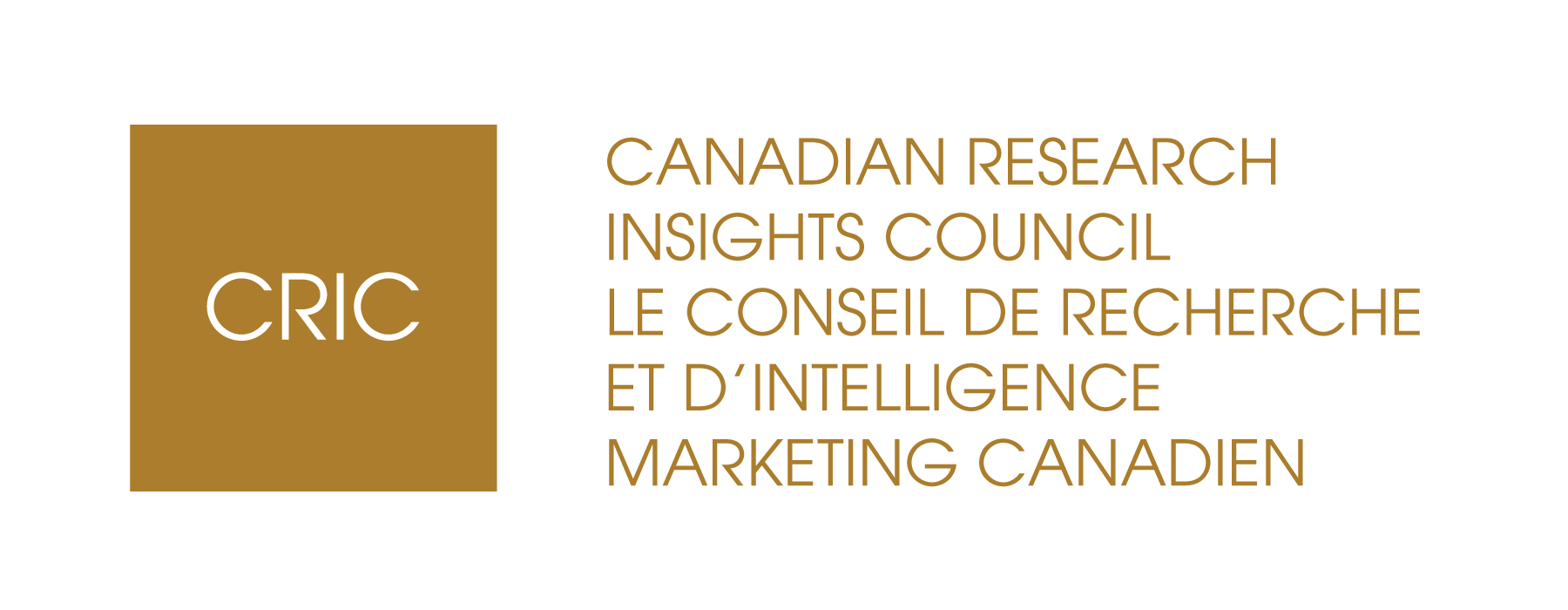Latest News
Subscribe to receive the latest news from CRIC
Research Got Talent 2024
The Canadian Research Insights Council (CRIC) is working closely with ESOMAR and the Certified Analytics and Insights Professionals of Canada (CAIP Canada) to bring the 2024 Research Got Talent competition back to Canada! This competition rewards and recognizes...
CRIC Announces Creation of New AI Task Force
The Canadian Research Insights Council (CRIC), the Canadian industry association for the market research industry, is proud to announce the creation of its brand-new artificial intelligence (AI) task force, a committee to offer guidance on integrating AI into the...
CRIC Announces Call for Nominations for Fellows
The Canadian Research Insights Council (CRIC) is seeking nominations of individuals to be recognized as Fellows of CRIC. The CRIC Fellows program is designed to be the highest honour awarded to individuals of our industry in Canada. We encourage nominations of...
Congratulations Research Got Talent 2023 Winners Emma Power & Theresa Boulos
Congratulations to Emma Power and Theresa Boulos, both at Narrative Research, for winning the 2023 Canadian Research Got Talent competition with their entry to help YMCA Immigrant Services (YMCA) aid newcomers to succeed in the workforce. With Canada planning to grow...
Congratulations to CRIC Members for Accurate and Transparent Polling in the 2023 Alberta Election
Public opinion researchers have, once again, demonstrated that survey research remains a valuable tool in helping Canadians make informed election decisions. The surveys released by CRIC member companies in the 2023 Alberta election predicted a close race with the...
Global Data Quality Partnership Expands
Initiative to Fight Fraud in Consumer Insights Strengthens with Addition of Leading Organizations from Australia, Canada & Austria The Global Data Quality Partnership, a coordinated effort to address ongoing and emerging risks to data quality in the market and social...
CRIC call for Nominations for Candidates for the CRIC Board
The Canadian Research Insights Council (CRIC) is seeking nominations for candidates to fill four positions on its Board of Directors that are up for renewal. CRIC welcomes nominations of leaders from across our industry including those on the client-side and in...
Young Researchers – Showcase Your Talent While Helping a Canadian Charity
The Canadian Research Insights Council (CRIC) is working closely with ESOMAR and the Certified Analytics and Insights Professionals of Canada (CAIP Canada) to bring the 2023 Research Got Talent competition back to Canada! This competition rewards and recognizes...
CRIC is pleased to recognize four new Fellows of CRIC – The highest honour awarded to individuals of the profession in Canada
CRIC is pleased to recognize Anastasia Arabia, CAIP, FCRIC, Jean-Marc Léger, CAIP, FCRIC, Jordan Levitin, CAIP, FCRIC, and Steve Levy, CAIP, FCRIC as CRIC Fellows. The designation, Fellow of CRIC, is the highest honour awarded to individuals of the profession. It...








